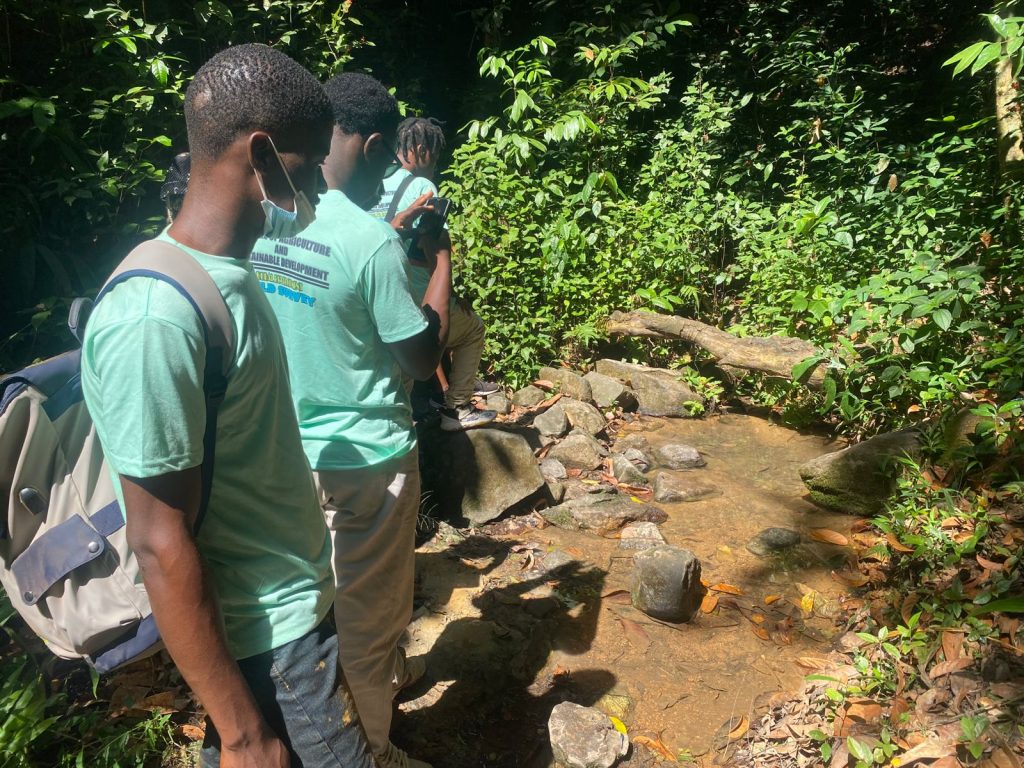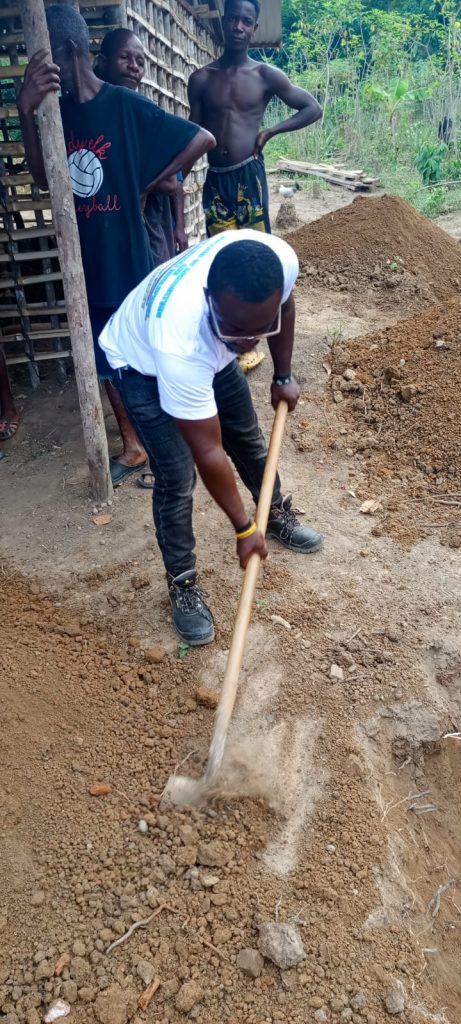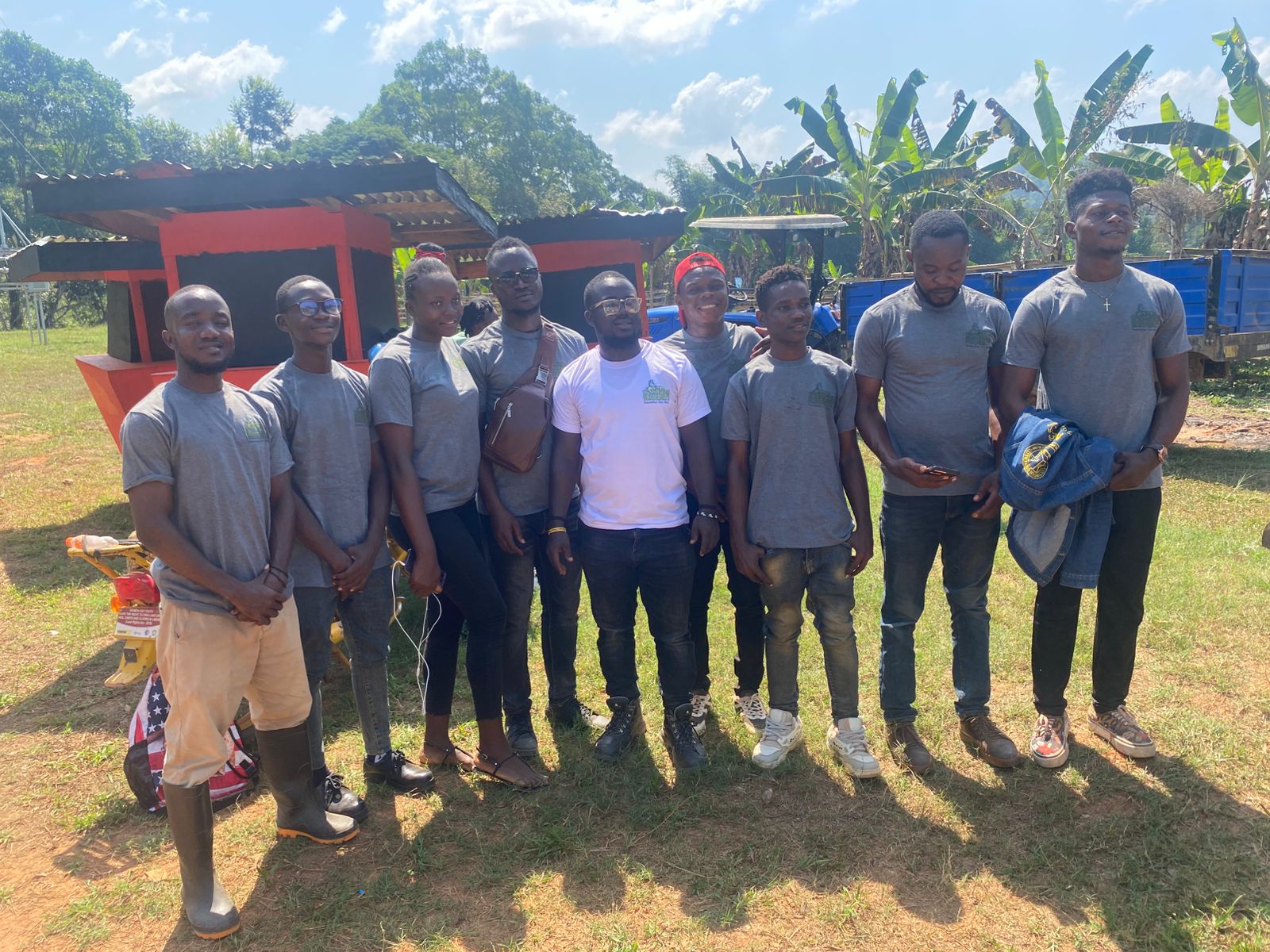Kpatawee Town, Liberia – In a unique educational collaboration, students from three different disciplines at Cuttington University recently ventured into Kpatawee Town, a rural community located in Liberia’s central region, to immerse themselves in the realities of rural life and development challenges. The field assessment led by their
Lecturer, Emmanuel Weah II, brought together Natural Resource Management (NRM) students, Rural Development students, and Rural Sociology students for a shared learning experience aimed at equipping them with practical insights into community needs and sustainable development.
The field trip was an essential part of the students’ coursework, specifically NRM 301, which focuses on the principles of community development. Each group brought a unique perspective to the table, with the NRM students seeking to understand the town’s natural resources and how they could be managed for sustainability; the Rural Development students aiming to assess and explore potential solutions to the challenges faced by rural communities; and the Rural Sociology students working to build connections with the community, to better appreciate rural living and foster deeper social understanding.
Understanding Community Needs and Resources
For the Natural Resource Management students, the focus of the assessment was to gather firsthand information on the community’s resources and challenges. “We aim to understand how natural resources are being utilized in Kpatawee and identify opportunities for sustainable practices that can empower the community,” said student Sharon N. Syes. She explained that the NRM students assessed the town’s water sources, agricultural practices, and forestry, identifying areas where more sustainable approaches could be adopted to help the community thrive.

“We’re also looking at challenges such as land degradation and deforestation,” she continued. “The goal is to come up with solutions that help preserve natural resources while also benefiting the livelihoods of community members.”
Assessing Rural Development Needs
Meanwhile, the Rural Development students focused on identifying the needs and challenges that rural communities like Kpatawee face in their daily lives. “Rural communities often struggle with limited access to essential services such as healthcare, education, and infrastructure,” explained Alfred N. Gono, a Rural Development student. “Through this field trip, we’re learning how to assess these challenges and explore effective solutions to address them, such as improving road access, water facilities, and education.”
One of the central concerns they identified during their visit was the lack of consistent access to clean water and the need for improved sanitation infrastructure. The students interacted directly with community members to gather insights on how to address these issues sustainably, with some proposing the installation of more wells and better waste management systems.

Building Social Understanding in Rural Communities
Rural Sociology students were equally engaged, though their focus was more on social dynamics and community interaction. “This trip gives us an opportunity to experience rural life firsthand,” said Simeon N. Flomo , a Rural Sociology student. “We’re learning not only about the physical aspects of rural living but also about the social bonds that exist within communities like Kpatawee.”
Throughout their visit, the Sociology students participated in discussions and shared meals with local families, fostering mutual respect and understanding. Their efforts helped bridge the gap between urban academia and rural lifestyles, offering a fresh perspective on rural community life.
“The goal here is to build relationships and better understand the social fabric of rural communities,” Tonia added. “We want to explore how these communities support each other and what challenges they face in terms of social cohesion and opportunities for growth.”
A Collaborative Approach to Rural Development
The trip to Kpatawee Town exemplified the power of interdisciplinary learning. By working together, students from different fields shared valuable insights and proposed creative, inclusive solutions that could enhance the quality of life in rural Liberia. Lecturer Emmanuel Weah II highlighted the significance of the field trip in providing students with practical knowledge.
“This trip is part of our broader goal of helping students understand the real-world implications of their studies,” Weah said. “It’s one thing to read about community development, resource management, or rural sociology in textbooks; it’s quite another to interact with the community and see the challenges firsthand. We aim to equip these students with not only theoretical knowledge but also the practical tools to make meaningful contributions to the development of rural Liberia.”
Moving Forward: Sustainable Solutions for Kpatawee
As the field trip came to a close, students left Kpatawee Town with a renewed sense of purpose and a deeper commitment to helping rural communities overcome their challenges. Though they are still in the early stages of their assessments, many students expressed optimism about the potential impact of their work.
“We’ve seen firsthand how much Kpatawee Town can benefit from the right kind of intervention,” said Korto T. Forkpa. “We are confident that with the right sustainable approaches to natural resources, rural development, and social cohesion, this community can flourish.”
The trip not only broadened the students’ perspectives on the challenges faced by rural communities but also strengthened the bonds between academia and the local population, showing that with knowledge and collaboration, real change is possible.



